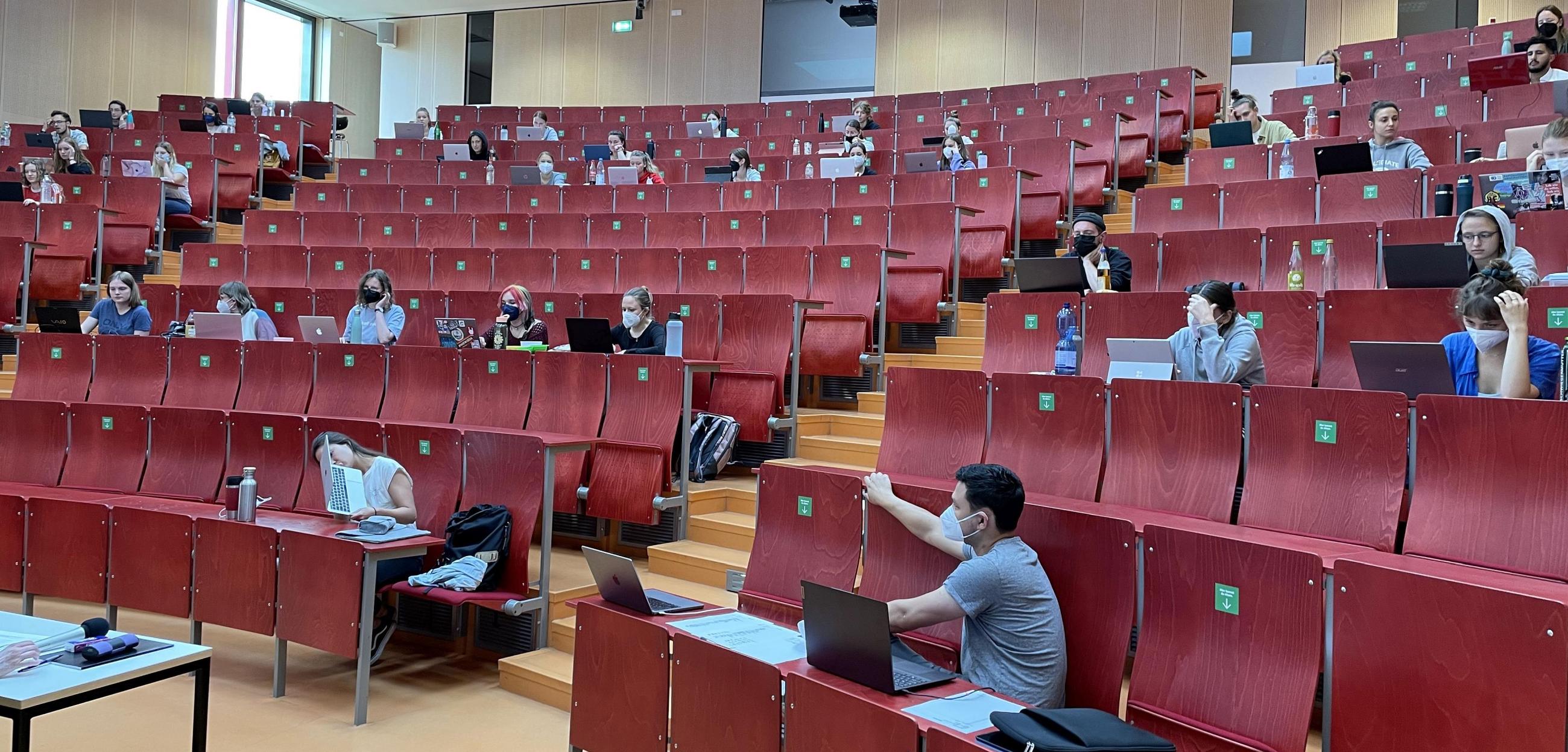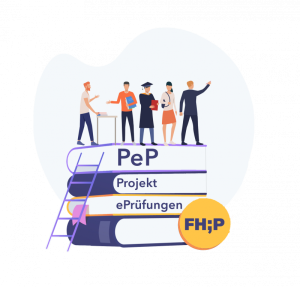Digital Teaching: PeP – Electronic Examination Project
In the interdisciplinary project "PeP – Projekt elektronische Prüfung", digital examination formats are to be developed, used and evaluated for 12 digitised lectures in four departments at the University of Applied Sciences Potsdam.

Title of the lectures involved
- Art Technology and Conservation (Department of CITY | BUILDING | CULTURE)
- Statics of Supporting Structures 1 (Department of Civil Engineering)
- Steel Construction 1 - Fundamentals (Department of Civil Engineering)
- Statistics for Archivists (Department of Information Sciences)
- Lecture Law (Department of Information Sciences)
- Digital Media and Aesthetics (Department of Social and Educational Sciences/FB1)
- Social Administrative Law (FB1)
- Theories of Social Work (FB1)
- Lecture in Psychology (FB1)
- Introduction to Law / Family Law (FB1)
- Fundamentals of Social Work I & II (FB1)
- Current socio-political topics (FB1)
Development of digital examination formats
The challenge is not to translate existing analogue examinations 1:1 into digital examinations, but to develop digital formats that surpass analogue formats didactically. This should be made possible through an internal richness of variants, timely feedbacks, activation and interaction in examination situations, as well as through the dismantling of barriers, through the transparency and lower error-proneness of assessments and through the strengthening of the digital competences of all participants.
Automation, interaction and combination.
Analogue examinations are characterised by the following conditions: The learned knowledge is tested in a compressed way at a specific point in time, with a limited time limit and in a relatively homogeneous, location-dependent format. Relatively delayed, students receive their grade back as feedback of their performance. In this respect, the feedback aspect of the classic exam is minimal.
Digitisation offers new possibilities at this point, through:
- Automated formative assessment at different points in time enable immediate feedback for students, which not only relates to the correctness of the answer, but can also offer new stimuli.
- Digital interactivity and peer interaction: Digitally, interactive assessment formats are possible that classically only occur in oral examinations.
- Combination: Digitalisation makes it possible to convert ONE large examination at the end of the semester into several small sub-examinations during the semester. This broadens the spectrum of learning, increases learning success and achieves higher student participation.
Examination formats
The following formats are to be tested and further developed within the framework of the project:
- Self-assessment: These include multiple-choice knowledge tests for exam preparation as well as other question typologies such as drag and drop, matching and short answer. In addition, other interactive media formats can be implemented in H5P, including video, audio and image formats.
- Interactive e-lectures: The e-lectures are interspersed with multiple-choice questions or research tasks (without time limit).
- Multiple-choice knowledge tests (with time limit) refer to the e-lectures and accompanying literature. In addition to multiple-choice questions, other question formats include finding correct or incorrect terms and central quotations as cloze texts. Another, less frequently used format is open text entry.
- Transfertasks: This module can be used to submit texts, posters, audios or videos electronically for the respective lecture unit. The advantage of Transfertasks is that students are intensively engaged in the application of knowledge, e.g. by linking practical applications with theory or by setting competence-oriented questions/assignments.
- Peer reviews in a double-blind procedure. Students submit their own transfer tasks and anonymously evaluate transfer tasks of other fellow students.
- Participation in thematic forums on individual lecture units can be assessed, e.g. by awarding points for each contribution as part of an ePortfolio examination (see below).
Contribution to the goals of the university
The higher education development goals "Future-Oriented Study" and here in particular the sub-goal "2.1.5 Expand and Implement Digital Competence" are supported by the project. Digital competences of students and teachers are strengthened .
The project work is carried out in an interdisciplinary manner in order to capture the specific requirements of the disciplines, but also to connect didactic commonalities of the disciplines. On the one hand, the cooperation of four departments creates an enormous broad effect in the FHP, and on the other hand, points of contact can arise for interdisciplinary teaching or examination projects.
The university's development goal of "thinking globally" can be supported by a later English-language version of the digital examinations; together with appropriate subtitles for the e-lectures, the university would thus be well equipped to receive incoming students and the internationalisation strategy could be strengthened.
The new framework study and examination regulations enable digital examinations, clarify the examination requirements (declaration of independence, identification, data protection) and explicitly call for the further development of digital examinations. This project may also entail changes to the course-related study and examination regulations as well as the module descriptions.

Contact


